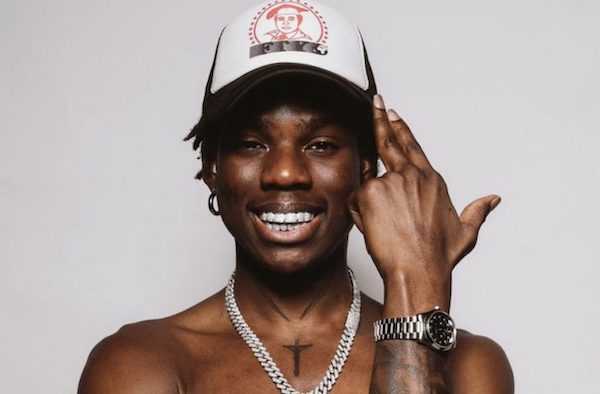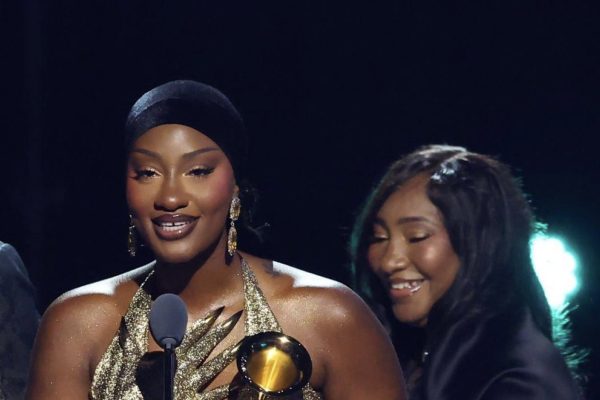It is the end of 2019 and Burna Boy is nominated for a Grammy for his latest record, African Giant. Come January 26, he may well go all the way to become the first homegrown Nigerian artist to triumph in the world music category. A mercurial character famed for attracting as much ire as he has adoration, Burna Boy has always been pretty distinct about his artistry even when the discipline and resources to see it through have been lacking.
In 2017, after half a decade of experimentation and playing out different sounds, Burna Boy- born Damini Ebunoluwa Ogulu- put some distance between himself and some of the negative publicity that swirled around him of late. He rebranded, moved to London to record an album he titled Outside. Comprised entirely of new songs in a new genre he described as Afrofusion, the music on Outside, released in 2018 shifted between Afrobeats, dancehall, reggae and road rap and melded into an addictive, diffusible mix.
Burna Boy described Afrofusion as a mixture of world music with a distinctly Nigerian sensibility and with the record, he was able to capture the global zeitgeist of interest in Nigerian music through smash hits like Ye and Giddem. It helped also that American rapper Kanye West would go on to title his own eighth studio album Ye.
Riding on this success, both home and abroad, Burna Boy began work on new material. African Giant, an ambitiously imagined record that pays homage to the activism of the great Fela Anikulapo-Kuti- a permanent influence on Burna Boy’s sound- is uncompromising in its vision. Rooted in local sounds and dialects yet broadened by a worldview that remains ready to evolve at any moment’s notice. African Giant is a triumph of sonic imagination and houses perhaps the finest songwriting Burna Boy has done his entire career.
There were moments this year where Burna Boy courted controversy, reminding everyone exactly who he was and the tightly drawn boundaries of his willingness to compromise. He publicly spoke up against the management at Coachella, one of live music’s biggest platforms, for not giving him the dues he felt he deserved. Even though this behavior alienated him from some fans, it helped give the album that arrived later, greater resonance. He would also waste no time in picking up a beef with South African rapper AKA, a former collaborator.
While on the whirlwind media tour that presented African Giant– and in many cases, Burna Boy himself to America- he was quite articulate about his heritage. Unapologetic about his criticisms of colonization and Africa’s post-colonial unravelling, Burna Boy also spoke bluntly of the refusal of the West to acknowledge and make proper amends for the damage they caused to African countries.
Every platform he got was put to use reiterating the powerful bonds Africans share with their brothers and sisters who were either forcefully migrated to the West or did so voluntarily. He was rewarded for this courage- and for his music- with wins at the BET Awards- where his mother famously and eloquently stressed on African identity. Other wins would come from the MTV Europe Music Awards, the AFRIMMA awards and the Future Awards Africa where he was named Young Person of the Year after three consecutive nominations.
Burna Boy has worked these past few years to become one of the global ambassadors for Nigerian afrobeats music. He joined compatriots Yemi Alade, Wizkid and Tiwa Savage as guest acts on Beyonce’s curated The Lion King: The Gift soundtrack album. Matter of fact he was the only act besides Beyonce to score a solo recording on the album. This year he also collaborated with Stormzy, Ed Sheeran and Angelique Kidjo.
What has been most interesting to note about Burna Boy’s remarkable ascension is that while his peers have gone about nakedly chasing the clout and the global audience, sometimes altering their sound and identity to fit into music executives’ preconceived ideas of what an African artist should look or sound like, Burna’s has felt more organic and therefore more effective. He told Vanity Fair this year, “My thing is more to come and bring people over to my side so they see the other side, so they see something other than what they’re used to, other than their comfort zone.”
Burna Boy has played the game sure enough- no one achieves success on the scale that he has without doing so- but he has done so while staying true to himself, his art and his identity. On the way to global recognition, Burna Boy has walked his talk, highlighting the importance of the music, above every other element. This against the grain stance has been refreshing to watch, radical even considering that the music business represents capitalism both at its finest and worst. Burna Boy has simply refused to be chewed on and spit out by the system, demanding respect for himself and his peers along the way.
That’s how African giants do.














